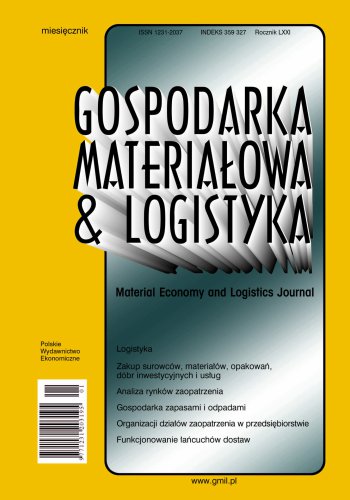The impact of automation and autonomization on changes in the business models of enterprises producing vehicles
The article is aimed at characterizing the issues related to the current and future ways of operating in companies producing vehicles, with particular emphasis on the impact of the automation and autonomization of road transport on the business models of such a companies.
A characteristic feature of the activities of enterprises from the automotive industry is constant development, concerning both products, their production technology, and the organization of the entire production process. Implementation by the manufacturers of innovative technologies related to the growing importance of vehicle automation and the possible dissemination of autonomous mobility results in the need to redefine the key success factors and introduce changes to the business models hitherto used. The article describes the classic business model of company from the automotive industry. Based on the adopted assumptions, related to the implementation of innovative technologies, determined were: the predicted scenarios for the future use of vehicles, scenarios for the future functioning of entities operating in the automotive industry, and possible variants of future business models in the enterprises in question in a situation of increasing importance of automation and vehicle autonomy.
References
Bibliografia/References
Literatura/Literature
Athanasopoulou, A., Reuver, M., Nikou, S., Bouwman, H. (2019). What technology enabled services impact business models in the automotive industry? An exploratory study. Futures, 109, 73–83. https://doi.org/10.1016/j.futures.2019.04.001
Berrada, J., Chritoforou, Z., Leurent, F. (2017). Which business models for autonomous vehicles? Conference: ITS Europe, Strasbourg.
Chen, Y., Perez, Y. (2018). Business Model Design: Lessons Learned from Tesla Motors. W: P. da Costa, D. Attias (red.), Towards a Sustainable Economy. Paradoxes and Trends in Energy and Transportation. Springer (53–69). https://doi.org/10.1007/978-3-319-79060-2_4
European Commission (2017). Blueprint for sectoral cooperation on skills. Automotive. Responding to skills mismatches at sectoral level. European Union.
European Commission (2020). CO2 emission performance standards for cars and vans, https://ec.europa.eu/clima/policies/transport/vehicles/regulation_en
Fournier, G., Donada C. (2016). Future Business Models and Shapers for the Automotive Mobility? W: H. Proff, Th. M. Fojcik (red.), Nationale und internationale Trends in der Mobilität. Technische und betriebswirtschaftliche Aspekte (27–41). Springer, Gabler. https://doi.org/10.1007/978-3-658-14563-7_3
Keith, D. R., MacDuffie, J. P. (2020). Najlepszy sposób na pojazdy autonomiczne? Współpraca, https://mitsmr.pl (30.11.2021).
KPMG (2017). Protecting the fleet and the car business, https://www.upstream.auto/the-keys-to-securing-automotive-fleets-lp-kpmg/ (30.11.2021).
Monsellato, A. (2014/2015). Tesla Motors: A business model innovation in the automotive industry. Praca magisterska, Promotor: Paolo Boccardelli, Uniwersytet LUISS Guido Carli.
Osterwalder, A., Pigneur, Y. (2013). Tworzenie modeli biznesowych. Podręcznik wizjonera. Gliwice: Onepress.
Teece, D. (2018). Business models and dynamic capabilities. Long Range Planning, 51(1). https://doi.org/10.1016/j.lrp.2017.06.007
Wells, P. (2015). New Business Models and the Automotive Industry. W: P. Nieuwenhuis, P. Wells (red.), The Global Automotive Industry (209–217). Wiley, https://doi.org/10.1002/9781118802366.ch18
Wiśniewski, A. K. (2018). Klasyfikacje modeli biznesu. Przedsiębiorstwo we współczesnej gospodarce — teoria i praktyka. Quarterly Journal, (2).
Zysińska, M. (2013). Koncepcja modelu biznesowego i jej znaczenie w analizie przedsiębiorstw branży TSL. Transport Samochodowy, (4).
Akty prawne/Legal acts
Rozporządzenie Parlamentu Europejskiego i Rady (UE) 2019/2144 z 27 listopada 2019 (Dz. Urz. UE L325 z 27.11.2019).
Strony internetowe/Websites
https://www.solarisbus.com/
https://www.tesla.com/

